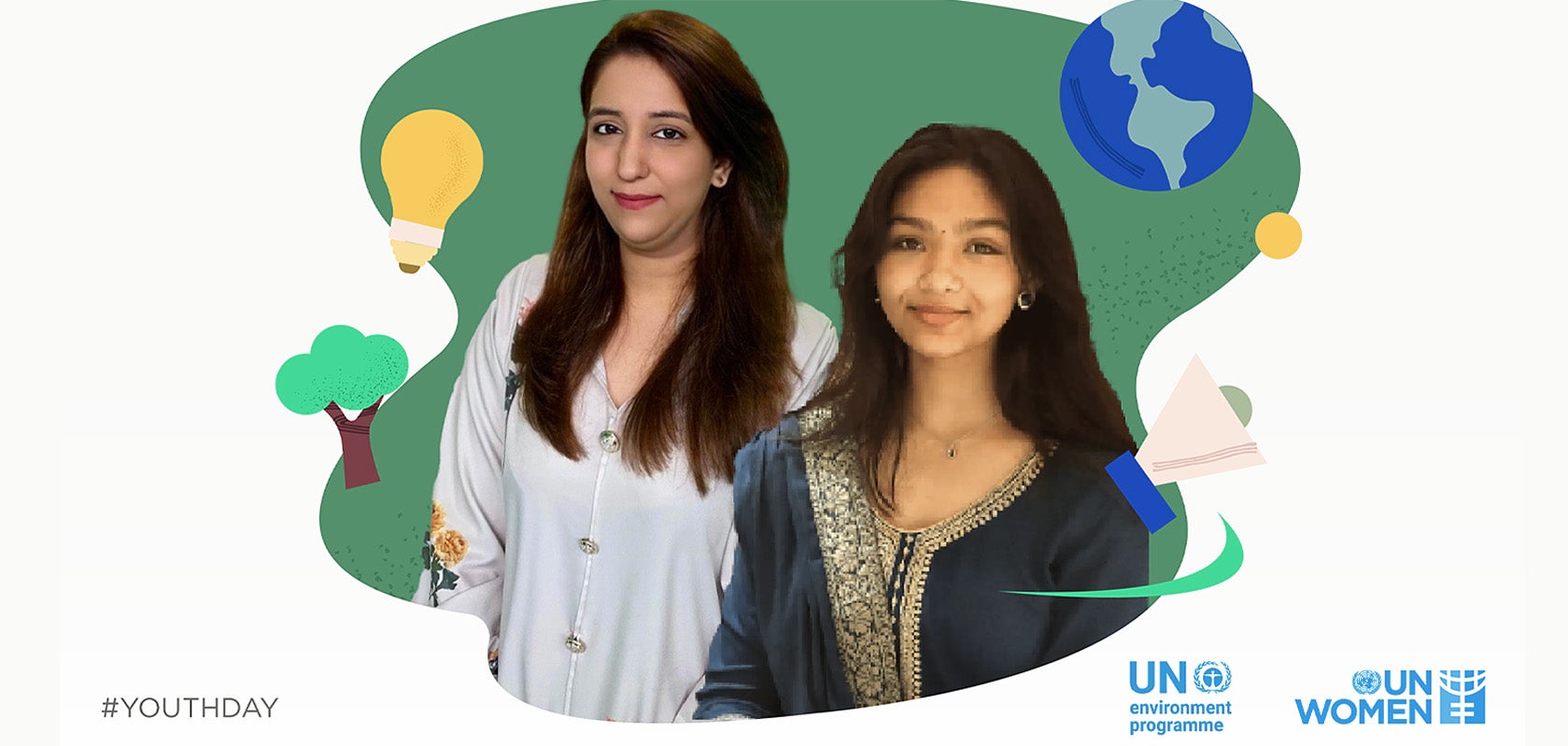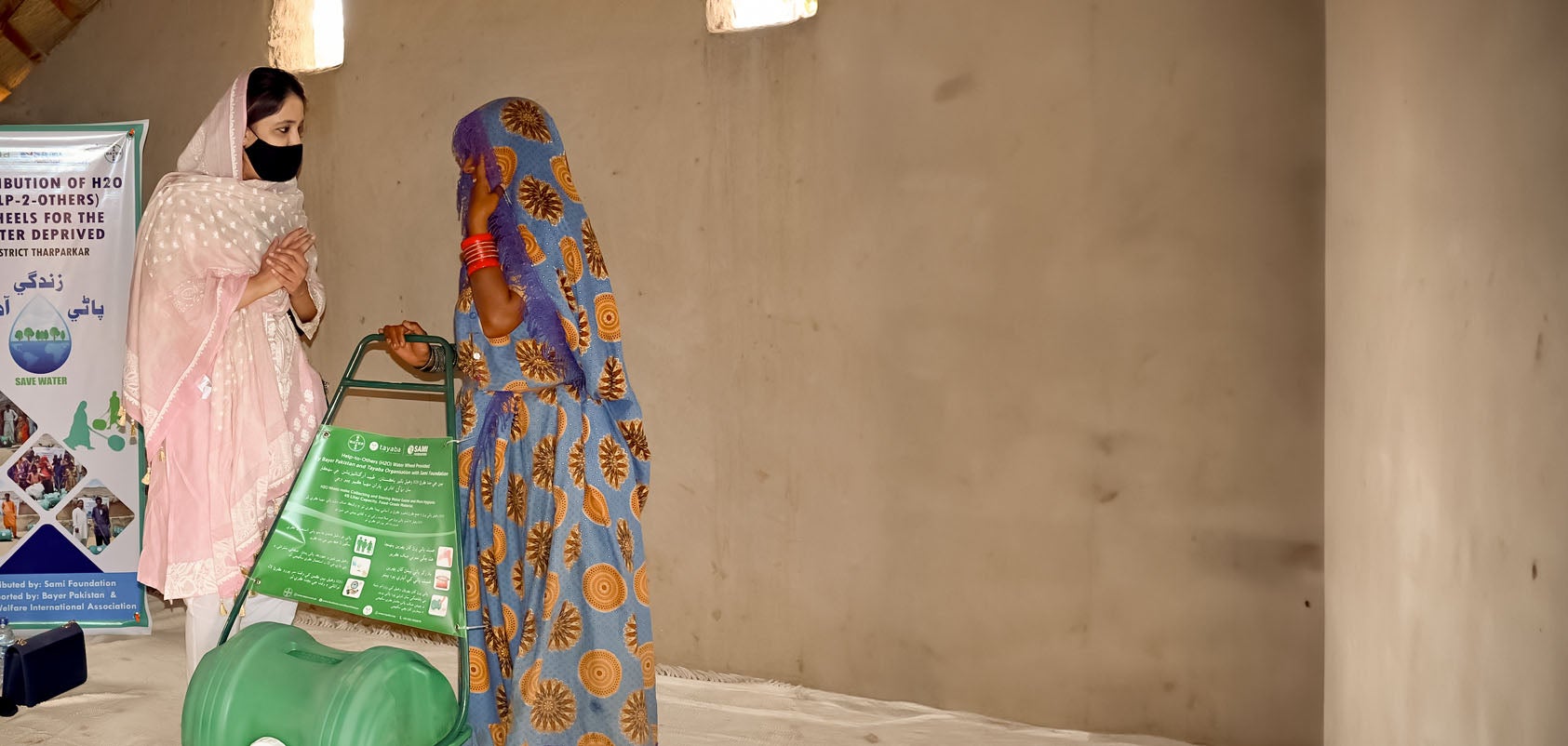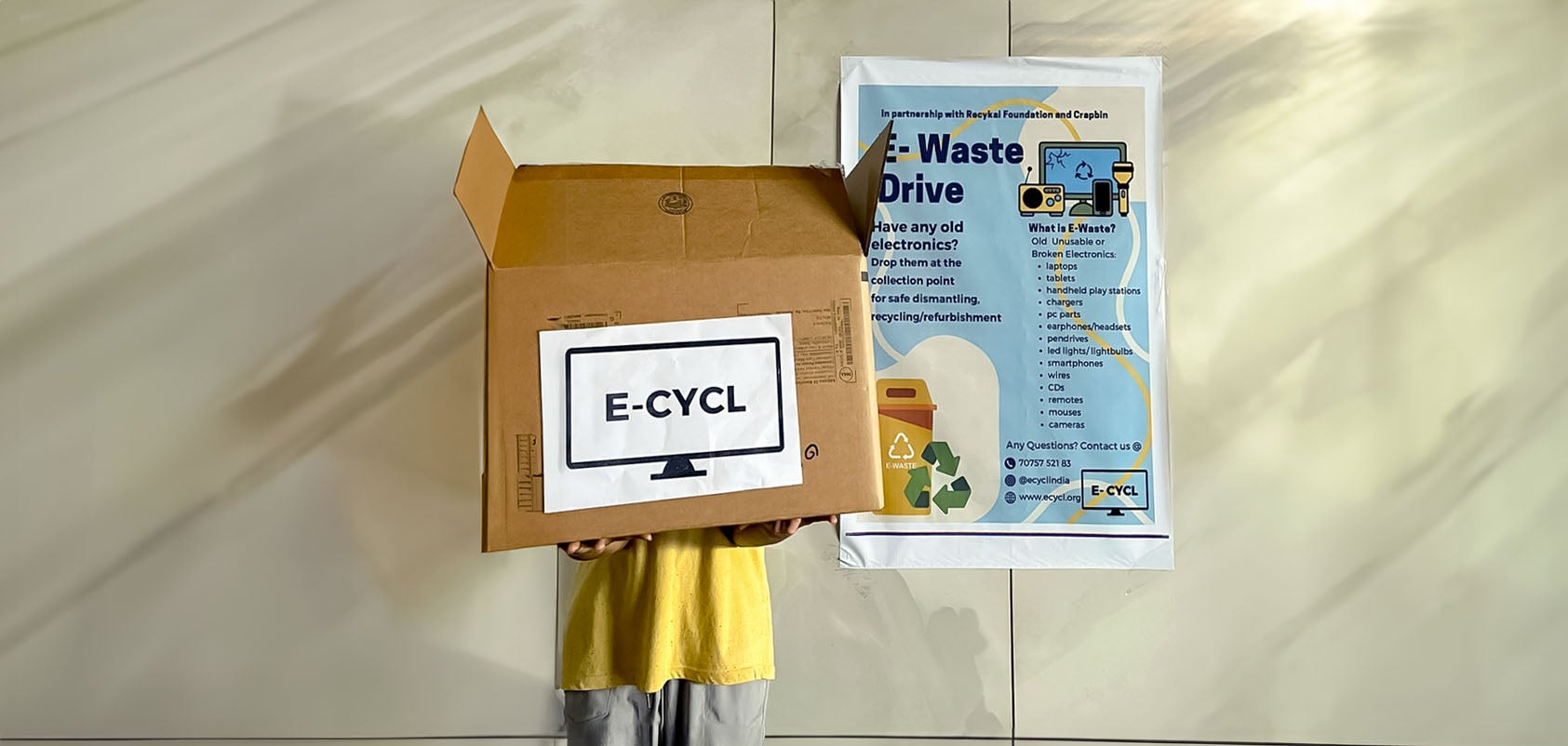Youth Day Spotlight: How Two Young Women are Tackling Environmental Crises
Date:

As the world faces the growing challenges of climate change, it is the younger generation who not only feel its impacts but who, going forward, will be tasked to mitigate and manage the global response to the climate crisis. They are the ones who will live with the consequences of what we do today. But they are not just passive inheritors; young people are leading the way and crafting innovative solutions to the climate crisis.
This International Youth Day, we spotlight two young climate innovators – Nida Yousaf Sheikh from Pakistan and Sahithi Radha from India. Through their creativity, optimism, and digital prowess, they are not only addressing critical environmental challenges but also creating a more resilient world for future generations.
Nida Yousaf Sheikh: Social Innovator from Pakistan
Pakistan faces a severe water and sanitation crisis. According to WaterAid Pakistan, 22 million people lack access to clean water, and 70 per cent of households rely on contaminated sources. This crisis disproportionately affects women, who bear the primary responsibility for fetching water, a task made even more arduous by the impacts of climate change. “My motivation to work on climate change and environmental initiatives is deeply personal and stems from my experiences with rural communities in Pakistan,” shared 31-year-old Nida. “Engaging with rural women, I saw their daily battle to access clean water and was heartbroken to see them reduced to the role of 'water labourers,' with their dignity and well-being disregarded,” she added.
In 2020, Nida joined Tayaba, a non-profit organization providing Wash, Sanitation and Hygiene (WASH) solutions through social innovations under its “Help-2-Others” (H2O) initiative. These innovations include:
- H2O Wheel: A rotatable water bottle designed to make transporting water easier and more efficient. It consists of a recyclable plastic wheel container connected to a metal bar, allowing it to be rolled with minimal effort. The wheel can carry up to 40 liters of water, reducing the physical strain of carrying heavy loads and ensuring hygienic storage to prevent waterborne diseases.
- H2O Solar and Air: These are water generators that use renewable energy to generate clean drinking water.
- H2O Pads: Reusable and biodegradable menstrual hygiene products, especially for displaced women during climate-induced disasters, crafted by rural women artisans.
- H2O Soaps: Unused or used soaps are collected from hospitality partners, soap manufacturers and urban households, and recycled by people employed as soap makers. These recycled soaps are distributed to rural communities, which help provide economic opportunities and basic hygiene while reducing environmental waste.
A significant innovation within Tayaba is the use of blockchain technology in their distribution process. During crises like the 2022 floods in Pakistan, where conventional banking systems collapsed and hindered aid distribution, blockchain maintained transparency and efficiency. Recipients used QR cards to quickly redeem resources such as menstrual pads and H2O wheels, overcoming the delays of the typical traditional systems.
Since Tayaba’s launch in 2020, they are rapidly transforming water access in Pakistan. Starting with only 100 H2O Wheels in Tharparkar district, they have now distributed over 30,000 nationwide.

Sahithi Radha: A Changemaker from India
Electronic waste is the fastest-growing stream of waste. According to the Ministry of Environment, Forest and Climate Change of India, India generated 1.6 million tonnes of e-waste in 2021 and 2022, and only 32.92 per cent was recycled. "I first observed this issue on the streets of Hyderabad, where countless sanitation workers, some of whom were children, were affected by mishandled e-waste,” said the 16-year-old Sahithi Radha. “E-waste contains toxic carcinogens such as mercury and arsenic. The damage caused when these substances contaminate our ecosystem is irreparable,” she added.
In 2022, she founded E-Cycl India, an initiative that recycles e-waste and raises awareness about responsible e-waste disposal. So far, E-Cycl India has recycled over 10,000 kilograms of e-waste through their collection and recycling drives, supporting the lives of 100 sanitation workers. E-Cycl India is also dedicated to environmental education and has engaged hundreds of young people through student-led awareness sessions at schools and workplaces, as well as through social media. Beyond grassroots efforts, E-Cycl India is also working towards systemic change. They have been instrumental in advocating for policy shifts surrounding child labour in the sanitation sector.

Reflecting on their journeys as young changemakers
“The most rewarding aspect of my work has been witnessing the profound impact of our initiatives on rural communities, especially women,” said Nida. However, the journey was not smooth, especially with communities’ resistance to technological change. “Many have grown accustomed to viewing access to water and sanitation as a struggle, making the transition to more efficient, labour-saving solutions challenging.” However, through awareness campaigns and targeted training, they were able to shift perceptions and encourage acceptance. Furthermore, Nida highlighted the importance of involving beneficiaries in the problem-solving process. “By actively engaging them in creating solutions, we ensure that our approaches are truly effective and resonate with their needs.”
For Sahithi, the most fulfilling part has been knowing that she plays a crucial role in educating and empowering the next generation of climate leaders. She takes immense pride in fostering a community where young people can bring in their ideas and drive environmental innovation. “Although we have made a clear and widespread impact in India, I will not be satisfied until we have helped every sanitation worker we can reach.”
Message to young people looking to make a difference
Young people may feel that their ideas are too small or insignificant to make a real impact. This sense of doubt can be discouraging, especially when faced with the magnitude of global challenges like climate change. “No matter how small or insignificant you think your action is, it matters,” Sahithi said. “Stay educated, stay up to date. The only thing that cannot be taken away from you is your intelligence, and there is no fight against climate change without it.”
As for Nida, she highlights the importance of understanding the interconnectedness of all issues. “Even small, meaningful actions can create a domino effect across various areas, leading to significant change. Never underestimate the power and impact of your efforts.”
Nida Yousaf Sheikh and Sahithi Radha are members of UN Women’s 30 for 2030 Network. As part of the Climate Change Working Group, Nida and Sahithi will work with the EmPower: Women for Climate-Resilient Programme, jointly implemented by UN Women and the UN Environment Programme (UNEP) with support from the Governments of Germany, New Zealand, Sweden and Switzerland. EmPower is dedicated to empowering women and marginalized groups to take the lead in building climate-resilient communities.
For more information
Please visit www.empowerforclimate.org or contact:
Maria Holtsberg
Humanitarian Action, Disaster Risk Reduction,
Climate Portfolio Lead, UN Women Regional Office for Asia and the Pacific
[ Click to reveal ]
Parimita Mohanty
Programme Management Officer, Climate Change Division
UNEP Regional Office for Asia and the Pacific
e: [ Click to reveal ]